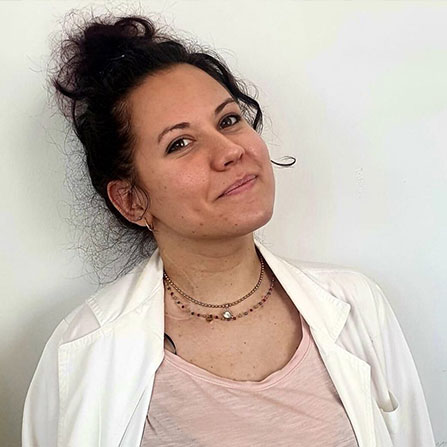Development of a next-generation in vitro platform for the high throughput screening of sustainable fish feed formulations.
The purpose of our project is to develop an in vitro platform that canmimic the process of intestinal absorption reliably. This model will enable a better understanding of the intestinal mucosal response to novel feed formulations,helping the industry identify the most promising raw materials.
The market demand forhigh-quality fish products is constantly growing, whereas the number of fish annually caught in the oceans has reached its plateau. This determinestheconstant growth of aquaculture,whichhas become our tables’ primary source of fish. Unfortunately, the most valuable farmed species’ nutritional habits generate concerns over theirsustainability. To ensure high levels of fatty acids and micronutrients that provide the widely appreciated healthy and nutritious components of a fish-based diet, in modern aquaculture, animals are fed with high-protein aquafeeds that rely primarily on fish meal and fish oil sourced from wild-captured forage fish. To make the situation even worse, aquafeeds are also used in terrestrial livestock feed and pet food; therefore, developing and optimizing alternative protein sources will play an important role in ensuring a socially and environmentally sustainable future for the aquaculture industry andagriculture at large. This has prompted the feed industry to search for alternative sources for formulating more sustainable diets. The development of a reliable in vitro platform will support these efforts by providing a reliable tool for screening the most promising raw materials. This will reduce the high costs related to the classical in vivo trials and the number of animals employed.
Our project will develop through the following steps: to develop a 3D in vitro platform that accurately mimics the complex mechanisms of absorption; to compare the results obtained testing alternative feeds in vitro with the results obtained with classical in vivo trails; to identify reliable endpoints to accurate evaluate the properties of new alternative feed formulation.
MSc in Veterinary Biotechnology at the University of Milan (UNIMI).
Exchange Program in which she had the opportunity to attend different courses (regenerative medicine and nanobiotechnology classes) and practical lessons at the Department of Biotechnology of the Autonomous University of Barcelona (Spain).
Master thesis on the characterization of the intestinal stem cell niche in Rainbow trout (Oncorhynchus mykiss).
Fellowship period in the laboratory of mouse and animal pathology (MAPLab) of the University of Milan,where she had the opportunity to study the role of diet in the modulation of immune cell populations in the bovine intestinal tract.
Worked on histology, immunohIstochemistry, and in situ hybridization.
Deep interest in tissue engineering/3D culture/absorption model research field.
Publications: Orcid ; Scopus ; IRIS-AIR
Supervisor Prof. Fulvio Gandolfi

